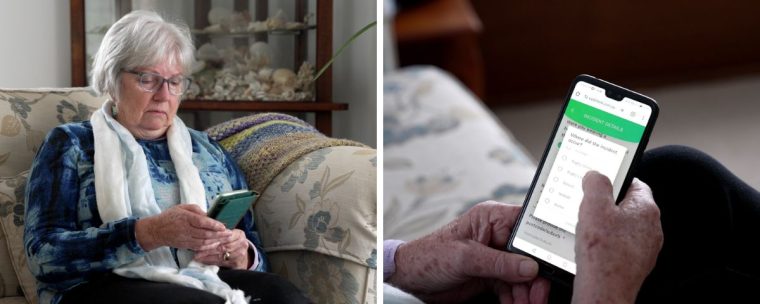By: Mike Crooks
Talented Australian rules player Antonio Loiacono had suffered numerous head knocks playing his beloved game, but tragically, two head blows in a rural South Australian game proved fatal.
After Antonio suffered a blow to the head in the first quarter of a game on April 22 last year in the Adelaide Hills, the 20-year-old continued to play and he sustained another head knock.
He lost consciousness and was flown to Royal Adelaide Hospital where he was later pronounced dead.
Antonio was a victim of second impact syndrome – when a person suffers another head injury before recovering from an earlier impact.
“Everyone who knew him loved him,” said his younger brother Jack Loiacono at the time. “He was just the most respectful, loving and caring person.”
Seeking answers
In light of tragic stories such as Antonio’s, the government’s Medical Research Future Fund is backing a new study that aims to better understand concussion.
The Australian Mild Traumatic Brain Injury Study (AUS-mTBI) involves more than 100 concussion experts across Australia and will seek to understand “what factors predict poor outcomes after concussion,” a statement from study organisers read.
“So, we can improve the timeliness of treatment for those more likely to have a delayed recovery.”
5,000 subjects
While most people with concussion recover within a few days or weeks, for some, the recovery can take longer.
The problem is, it is impossible to determine when a person with concussion is fully recovered.
The study is seeking “information and insights” from 5,000 people who have recently experienced concussion.
These people will be guided through their recovery while contributing to what will be pioneering research.
“If you’ve had a mild traumatic brain injury, that is a concussion, in the last 14 days, we would like to invite you to be part of this research project,” read a statement from AUS-mTBI organisers.
Revolutionary app
The study will use an app called HeadCheck to “identify what predicts recovery after concussion”.
A person suffering concussion can use HeadCheck to detail their injury and track their symptoms on their road to recovery.
The app also provides an “evidence-based, graded recovery program to support individuals,” said organisers.
Researchers will then analyse the data.
The app is available now (on Google Play or the App Store). Once a person has signed up, they click on the link to the “AUS-mTBI study” in the app, to become part of a project “to improve care and outcomes for others who get a concussion in the future,” a statement read.
“Participants will also be able to get guidance and track their own recovery through a unique symptom tracking tool.”

“Most concussions are not from sport”
Professor Melinda Fitzgerald, the CEO of not-for-profit organisation Connectivity Traumatic Brain Injury Australia, is leading the study and is calling on any people who have experienced concussion to take part.
The Curtin University professor points out that most concussions are not the result of a sporting injury.
“Most concussions occur as a consequence of motor vehicle accidents, falls or interpersonal violence,” she said.
“It’s really important that the AUS-mTBI study reaches people who experience concussion from all causes.
“So we are encouraging people to use the app, regardless of how they have experienced their injury, not limited to sporting based concussions.”
Project partners of the study include: Curtin University, Murdoch Children’s Research Institute, Monash University, Edith Cowan University, The Queensland Brain Institute, Griffith University, The University of Sydney, Deakin University, the National Imaging Facility, and Synapse Australia Limited.
As a further incentive to take part, people who complete the study will go into a draw to win Visa gift cards.
For more information visit here.
For details on the HeadCheck app visit here.
Article supplied with thanks to Hope Media.
Feature image: Photo by Alina Grubnyak on Unsplash
About the author: Michael Crooks is a senior journalist and former news editor of Who magazine. His work has appeared in People, Marie Claire, The Daily Telegraph, Herald Sun, news.com.au, Qantas magazine and more.
